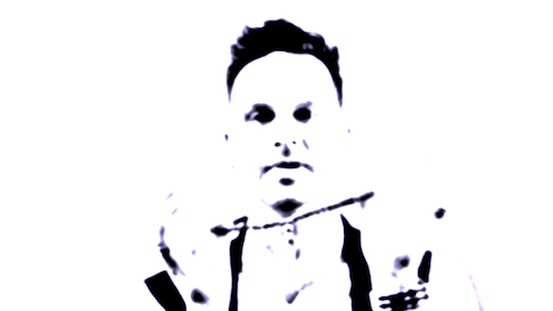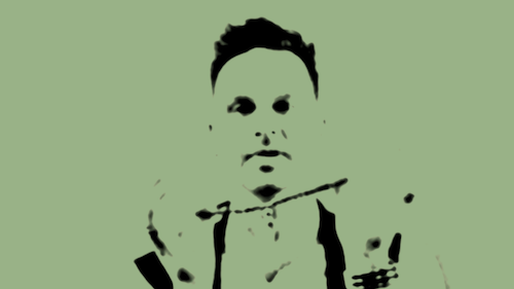
Robbie Maroon Interview
Q: Can you talk about your musical history?
A: Since I can remember I have always loved listening to music, but it was when I was 14, that changed. Listening wasn’t enough anymore. The moment everything changed came in the form of a Prince concert, an artist I knew nothing of at the time, but I left that concert in complete disbelief and awe. Within a week of the show I was getting my hands on as many Prince albums as I could, not long after I bought a keyboard and a Prince songbook, I started some lessons so I could play his songs. A short stint in a high school cover band as a bass player, led to some vocal training and a desire to become a singer/songwriter. At 19 I tried my hand at writing my own songs and have been exploring lyrics, chord progressions, melodies and arrangements ever since. A couple of attempts to put together original bands to play my material followed throughout the years. But I came to realize it is as a solo artist I find the most joy. The writing and recording of songs is what music is to me at the moment.
Q: There are a lot of disparate styles on Dream Factory Volume 1. Can you talk about how you approached the album as a solo artist?
A: The songs determine their own styles, much like dreams they have a life of their own and the possibilities within are limitless; they feel out of my control at times. I do not try to direct what they should sound like. The message and music evolve naturally. This is why the styles vary so much between tracks.
Q: What is your creative process like and how much experience do you having with engineering and production?
A: My creative process changes, I don’t have a set formula. At times I will write lyrics, based on personal experiences or observations that speak to me then compose music which feels like it enhances the story. Other times the music come first, sometimes inspired by others, with no intended theme the story then evolves from the groove or the chord progression. No matter where the song starts from, it’s the arrangement that always brings it to life, the barely noticeable lines and instruments that bring depth to the piece. I spent many years as a live engineer for cover bands on analogue equipment. I do all my own production, self-taught, but have also been lucky enough to be able pick the brains of a couple of engineers I know when needed.
Q: Can you talk about your musical history?
A: Since I can remember I have always loved listening to music, but it was when I was 14, that changed. Listening wasn’t enough anymore. The moment everything changed came in the form of a Prince concert, an artist I knew nothing of at the time, but I left that concert in complete disbelief and awe. Within a week of the show I was getting my hands on as many Prince albums as I could, not long after I bought a keyboard and a Prince songbook, I started some lessons so I could play his songs. A short stint in a high school cover band as a bass player, led to some vocal training and a desire to become a singer/songwriter. At 19 I tried my hand at writing my own songs and have been exploring lyrics, chord progressions, melodies and arrangements ever since. A couple of attempts to put together original bands to play my material followed throughout the years. But I came to realize it is as a solo artist I find the most joy. The writing and recording of songs is what music is to me at the moment.
Q: There are a lot of disparate styles on Dream Factory Volume 1. Can you talk about how you approached the album as a solo artist?
A: The songs determine their own styles, much like dreams they have a life of their own and the possibilities within are limitless; they feel out of my control at times. I do not try to direct what they should sound like. The message and music evolve naturally. This is why the styles vary so much between tracks.
Q: What is your creative process like and how much experience do you having with engineering and production?
A: My creative process changes, I don’t have a set formula. At times I will write lyrics, based on personal experiences or observations that speak to me then compose music which feels like it enhances the story. Other times the music come first, sometimes inspired by others, with no intended theme the story then evolves from the groove or the chord progression. No matter where the song starts from, it’s the arrangement that always brings it to life, the barely noticeable lines and instruments that bring depth to the piece. I spent many years as a live engineer for cover bands on analogue equipment. I do all my own production, self-taught, but have also been lucky enough to be able pick the brains of a couple of engineers I know when needed.

Q: Dream Factory Volume 1 is the first part of a double album. Why did you decide to release it separately and how do the albums differ?
A: Dream Factory is a state of mind. Volume 1 describes the search and journey to finding it, showcasing the vulnerabilities of the soul. Volume 2 is the exploration of that state of mind and reflections from within. Having two volumes helps separate the concept within the one album. Volume 2 much like Volume 1 is quite varied in style and content.
Q: What are some of the themes and ideas that run through Dream Factory Volume 1?
A: Love, faith, hope, belief, empathy, acceptance, vulnerability and despair. No matter the story the underlying message in all the songs is positivity. There is always an answer, there is a light at the end of every tunnel no matter how far it seems.
Q: What else do we need to know about Robbie Maroon and your music?
A: Everything you need to know is in the music.
A: Dream Factory is a state of mind. Volume 1 describes the search and journey to finding it, showcasing the vulnerabilities of the soul. Volume 2 is the exploration of that state of mind and reflections from within. Having two volumes helps separate the concept within the one album. Volume 2 much like Volume 1 is quite varied in style and content.
Q: What are some of the themes and ideas that run through Dream Factory Volume 1?
A: Love, faith, hope, belief, empathy, acceptance, vulnerability and despair. No matter the story the underlying message in all the songs is positivity. There is always an answer, there is a light at the end of every tunnel no matter how far it seems.
Q: What else do we need to know about Robbie Maroon and your music?
A: Everything you need to know is in the music.
